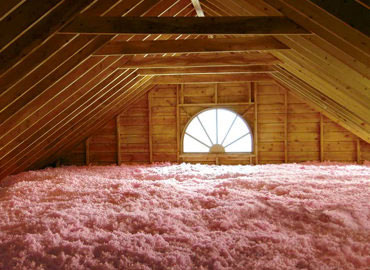FAQ / R-Value
Frequently Asked Questions
FAQ / R-Value
WHICH IS WARMER: CELLULOSE OR FIBERGLASS?
It depends on the application. Cellulose seals fine cracks and the wind doesn’t move it around as much. Cellulose is better for sound. Fiberglass is better for outside walls.
WHY IS THE FLOOR COLD OVER A CRAWLSPACE?
Because there’s no plastic on the ground and no insulation on the outside walls. You do not insulate the floor joists.
HOW MUCH INSULATION WOULD BE USED?
In attics: 12 inches anywhere from R40 to R44. Any existing insulation would be brought up to R40. Anything over R44 is a waste of money.
In walls: It depends on the wall thickness. R13 or R19
DO I NEED INSULATION IN MY HOME? IF SO, HOW MUCH?
You may need insulation in your home, but this can only be discovered by a free estimate done by our company. As for how much is necessary, an R-value of 45 is recommended for the Michigan area. R-Value is the product’s resistance to heat flow (heat loss), the higher the R-value the more resistant the material is to heat flow (heat loss).
DO I NEED TO BE HOME WHILE YOU ARE WORKING? I HAVE A VERY DEMANDING JOB/SCHEDULE AND DON’T KNOW IF I CAN FIND THE TIME.
No, we can make arrangements to arrive early before you need to leave, and will lock up the house upon your request.
WHERE IS ENERGY LOST IN A TYPICAL TWO-STORY HOME?
37% through the roof
14% through infiltration
19% through windows and doors
27% through walls
3% through floors
HOW CAN ENERGY LOSS BE STOPPED?
75% of energy loss can be stopped through:
Insulate attic
Insulate exterior side walls
Insulate perimeter of crawl space and basement, including box sills
Caulk and weather-strip areas of air leakage and infiltration

What You Should Know About R-Values
The Chart (below) shows the R-Value of this insulation. R means resistance to heat flow. The higher the R-Value, the greater the insulating power. Compare insulation R-Values before you buy.
There are other factors to consider. The amount of insulation you need depends mainly on the climate you live in. Also, your fuel savings from insulation will depend upon the climate, the type and size of your house, the amount of insulation already in your house, and your fuel use patterns and family size. If you buy too much insulation, it will cost you more than what you’ll save on fuel.
To get the marked R-Value, it is essential that this insulation be installed properly. Insulation placed too near electrical heat sources may cause fire. Follow installation instructions carefully. To avoid excess moisture build-up, proper ventilation of home is important following installation of this product.
| R-Value @ 75º | Initial Installed Thickness (in.) | Minimum Settled Thickness (in.) | Framing: 2 by 6 @ 16 in. OC | Framing: None | |||
| Bags per 1000 ft² | Maximum Net Coverage (ft²/bag) | Bags per 1000 ft² | Maximum Net Coverage (ft²/bag) | Minimum Net Coverage (ft²/bag) | |||
| SIDE WALL | 13.3 | 3.5 | 3.5 | This bag will cover 36.4 sq. ft. in 2x4 closed sidewall |
| 21 | 5.5 | 5.5 | This bag will cover 22.7 sq. ft. in 2x6 closed sidewall |
| Initial installed thicknesses were determined according to ASTM C1374 using a Krendl Model 2000 machine with shredder. Settings are not adjustable. |
| Average Net Weight: 25 lbs. *The proper installed thickness needed to achieve settled depth will vary with different machines, air settings, installer technique, etc. Therefore, the installed depth columns should be used only as an approximate guideline. To insure that product is installed at its settle thickness, you must refer to the “Settled Coverage” or “Bags per 1000 sq. ft.” columns. |


